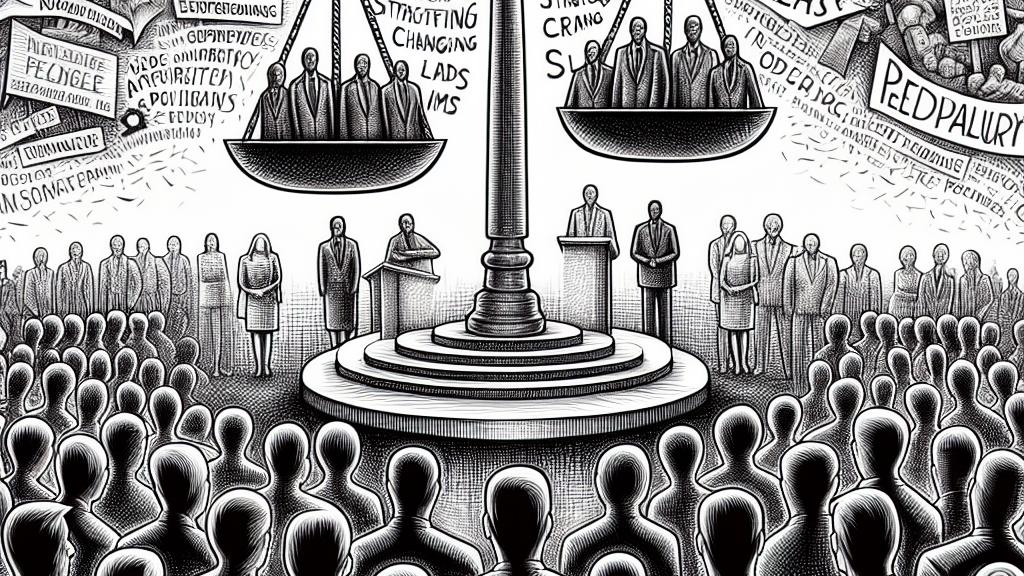Political Shifts: Dali Mpofu Leaves EFF for Zuma's MK Party
Overview
- Dali Mpofu's sudden departure from the EFF signifies a dramatic shake-up in South African politics.
- Following a disappointing election season, the EFF is losing its key figures to Jacob Zuma's MK party.
- Mpofu advocates that MK embodies a vital vision for unity and progress in the nation.

The Political Context of the Defection
In the evolving narrative of South African politics, the recent defection of Dali Mpofu from the Economic Freedom Fighters (EFF) to Jacob Zuma's uMkhonto weSizwe (MK) has captured national attention. This move is not just about an individual changing sides; it encapsulates broader issues within the EFF, which has, unfortunately, experienced a dip in popularity. Dropping from the coveted third position to a disappointing fourth in the national elections symbolizes a troubling trend for a party that once ignited hope among the youth yearning for change. The question looms: can the EFF reclaim its stronghold, or is it witnessing the beginning of its downfall? The urgency of this moment resonates throughout South African society, as political allegiances are tested and reshaped.
Motivations Behind Mpofu's Decision
So, what compelled Mpofu to make such a notable decision? His reason is steeped in a desire for authentic national unity and effective political action. In a heartfelt interview, he shared that he envisions MK as a necessary ally in the fight against lingering inequalities and injustices in South Africa. The MK party focuses on ambitious initiatives like radical land reform and state control over essential resources, aiming to transform the nation’s socio-economic landscape—a vision that resonates deeply with those disillusioned by the slow pace of change. Additionally, the discontent within the EFF is palpable; several party members are seeking a more stable and promising future with MK, highlighting a growing trend among politicians to pursue quicker pathways to power. This sentiment echoes across many ranks, as ambition combines with necessity in a rapidly changing political climate.
Reflecting on Reactions and Future Implications for the EFF
The fallout from Mpofu's exit has stirred significant unrest within the EFF, prompting harsh critiques of Julius Malema's leadership style—labelled by some as authoritarian. As discussions unfold on social media, a mix of resignation and hope crisscrosses the platforms; supporters lament the loss of key figures, while others hint at an inevitable purification process that could rejuvenate the party. Malema himself hinted at looming departures with statements laden with foreboding, as he urged remaining members to remain united and vigilant. This period of upheaval might serve as a critical turning point for the EFF which, if it can regroup and address internal dissatisfaction, may still have the opportunity to redefine its mission. Across South Africa's political horizon, the implications of these changes suggest that both the EFF and MK have compelling roles to play; the unfolding drama continues to shape the future of governance and leadership in this diverse nation.

Loading...